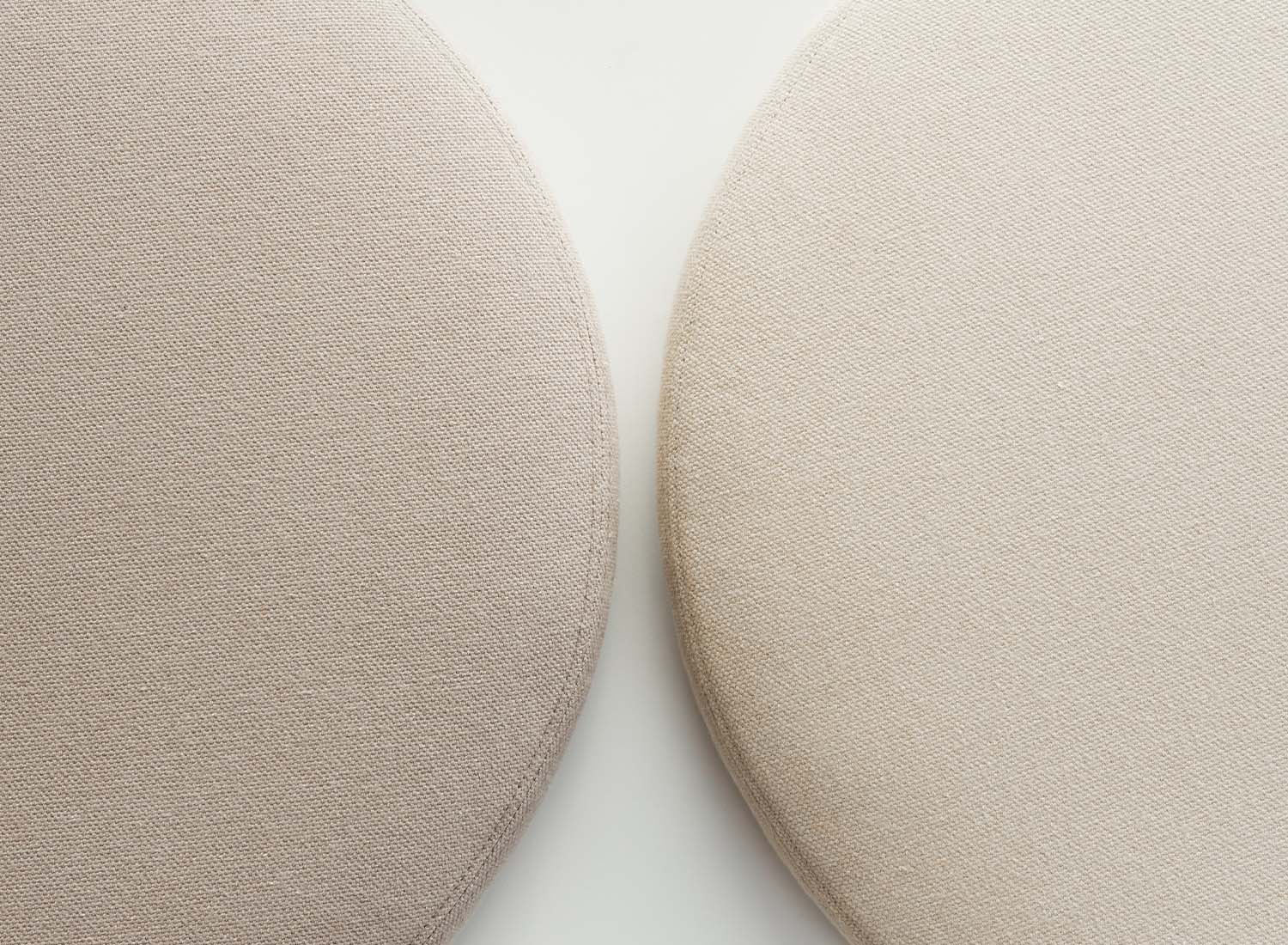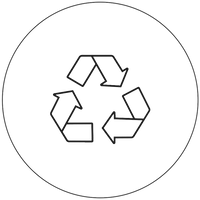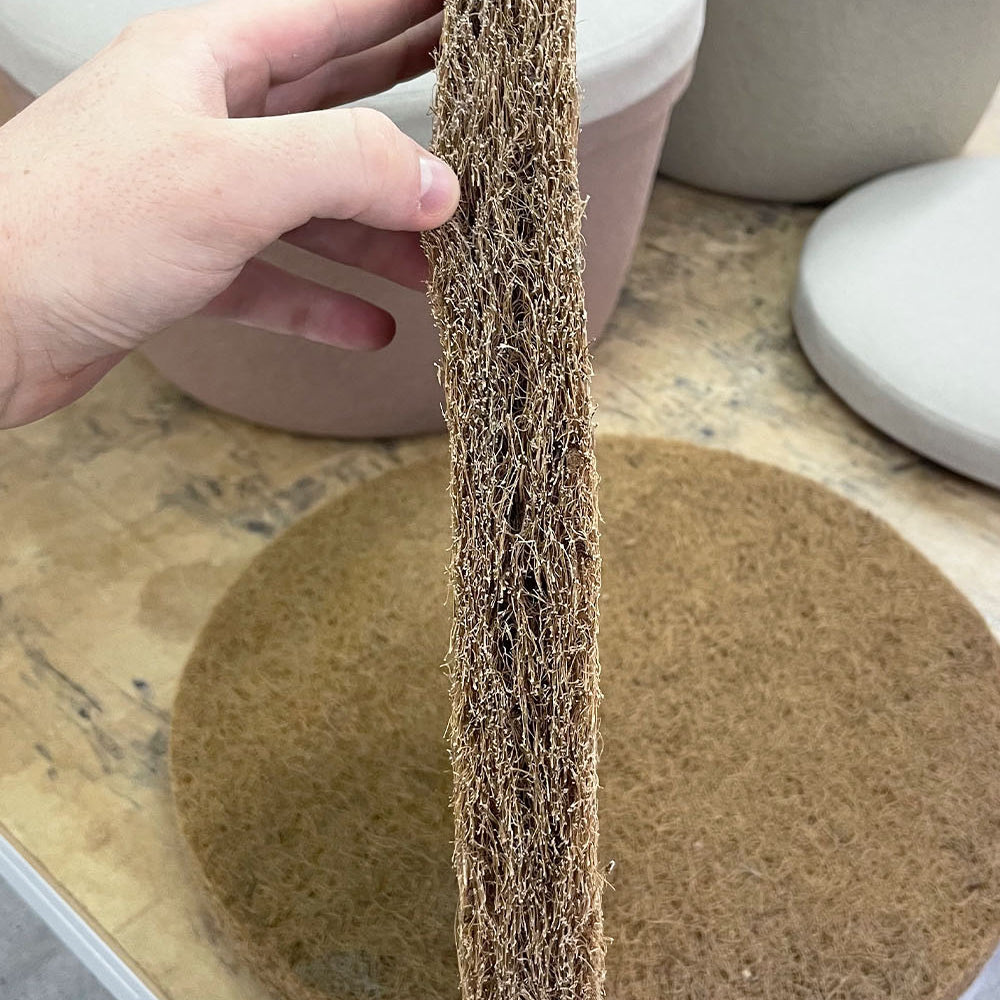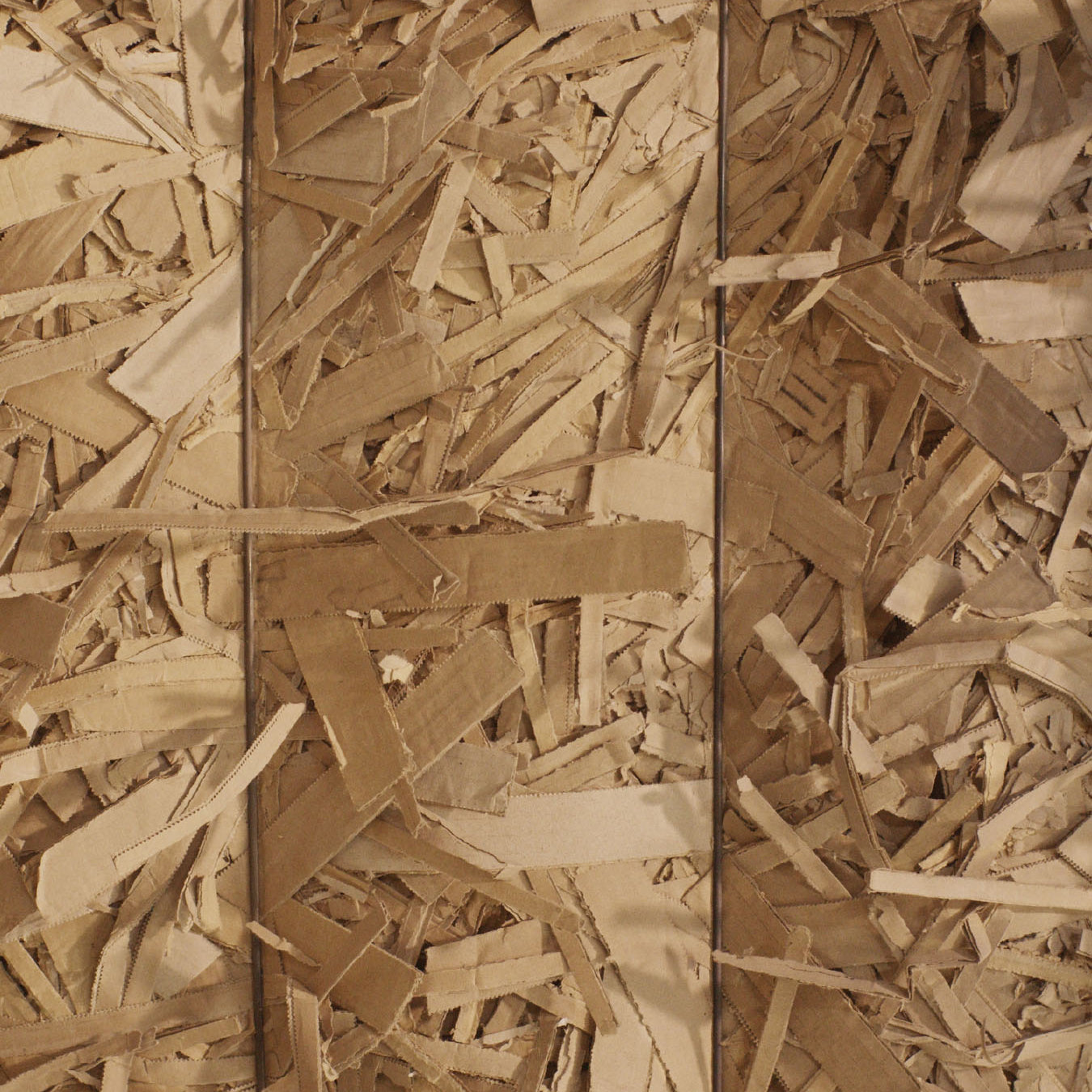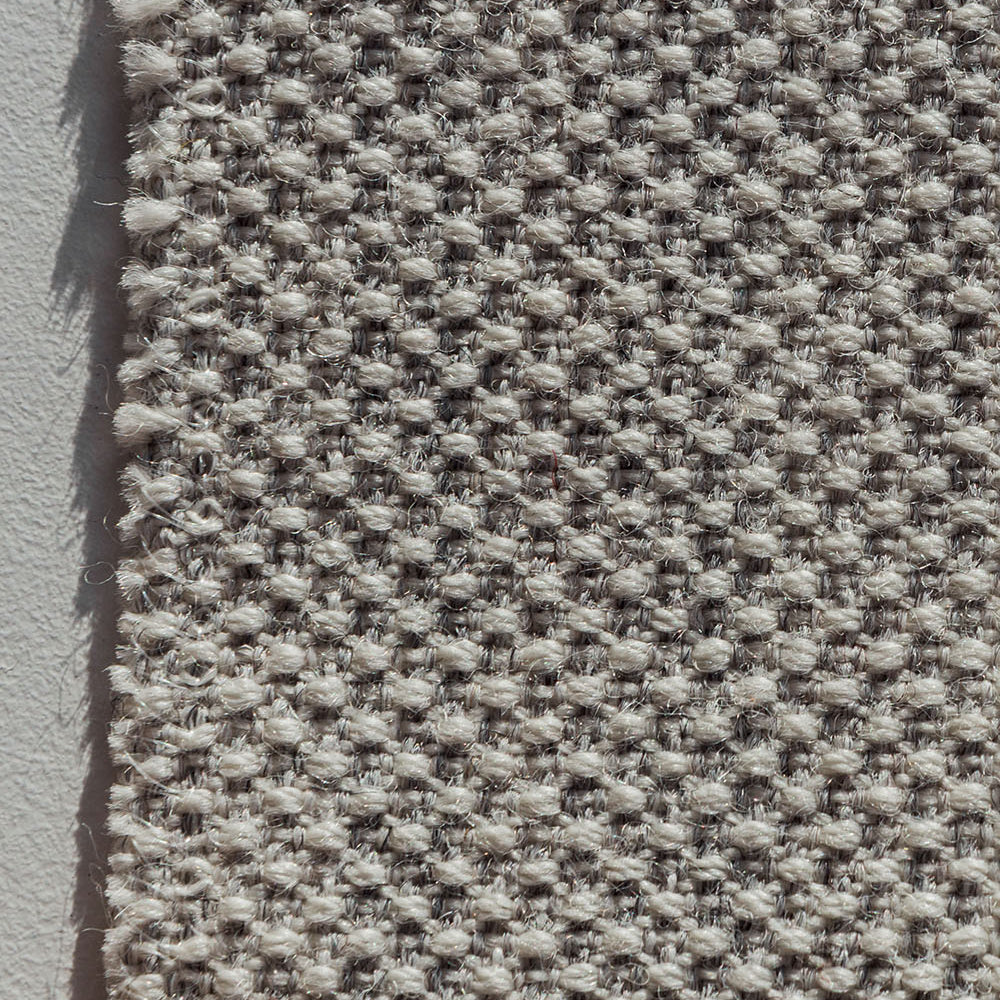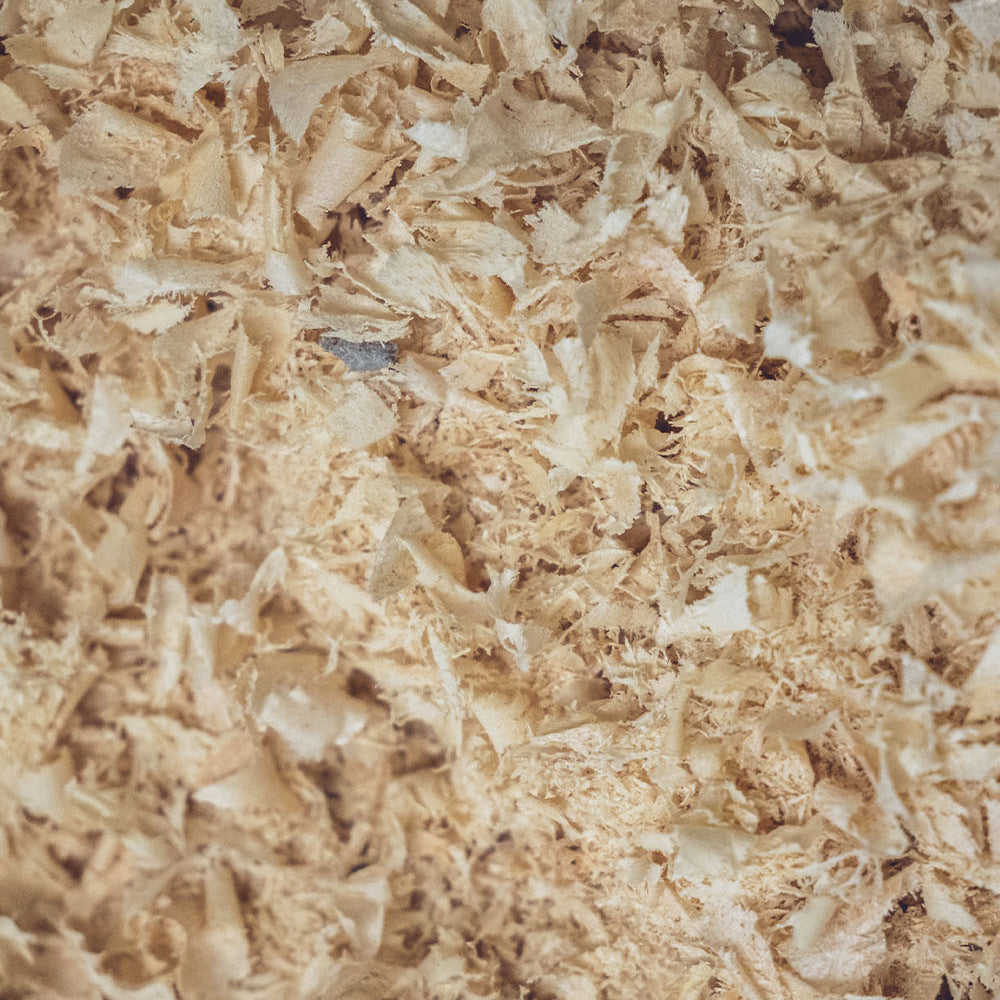No compromises
When choosing our materials, quality, circularity and where it comes from are all essential factors. We always look to source locally and keep our eyes open to new and exciting materials.
Paper Waste
Our products are primarily made from recycled paper, this can vary from cardboard, old newspapers or any other cellulose product. The paper we use is collected near Barcelona from KM0 recovery plants.
Paper comes from wood, which absorbs CO2 from the atmosphere, and by using paper waste, we re-circle a product more times for the benefit of our environment.
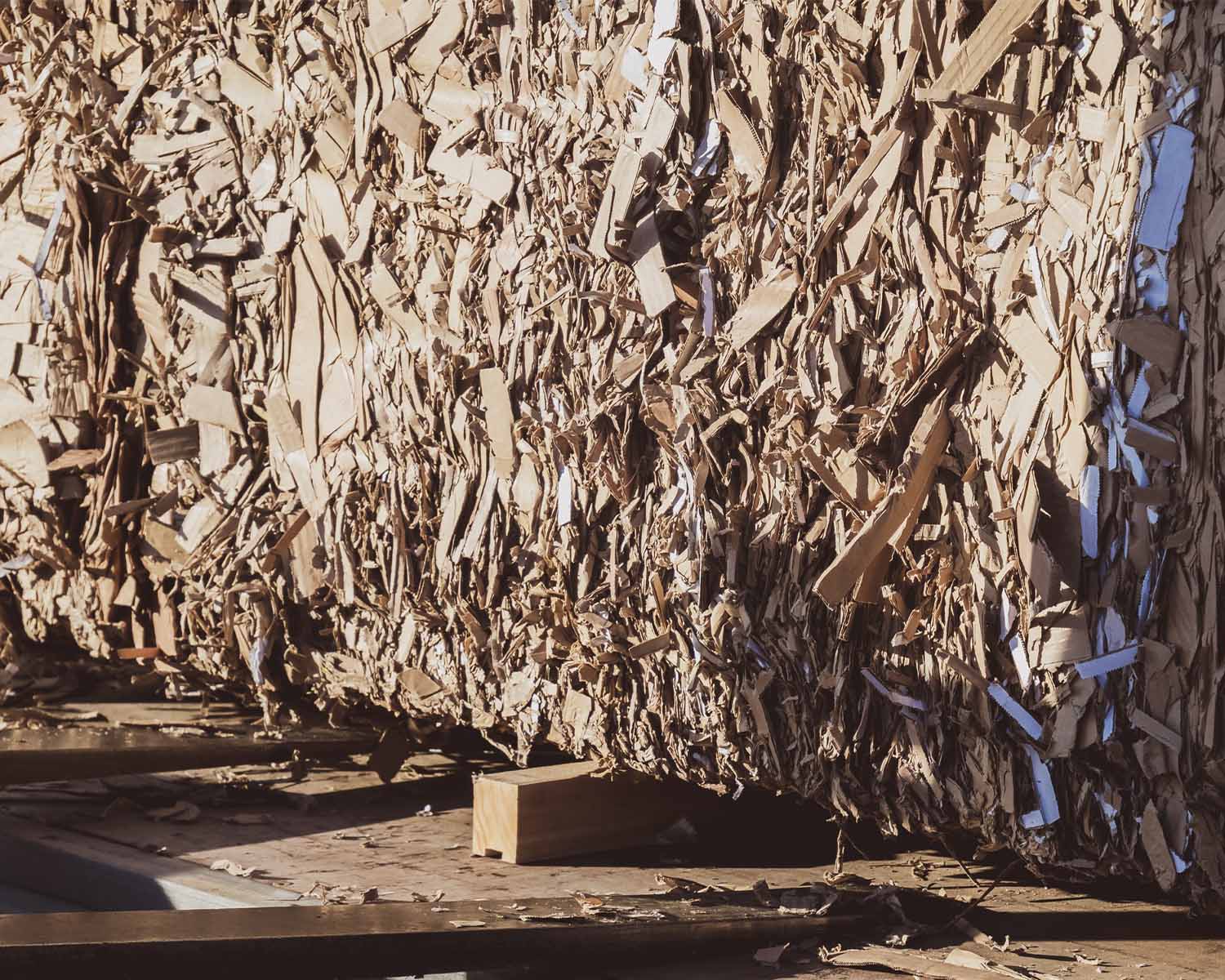
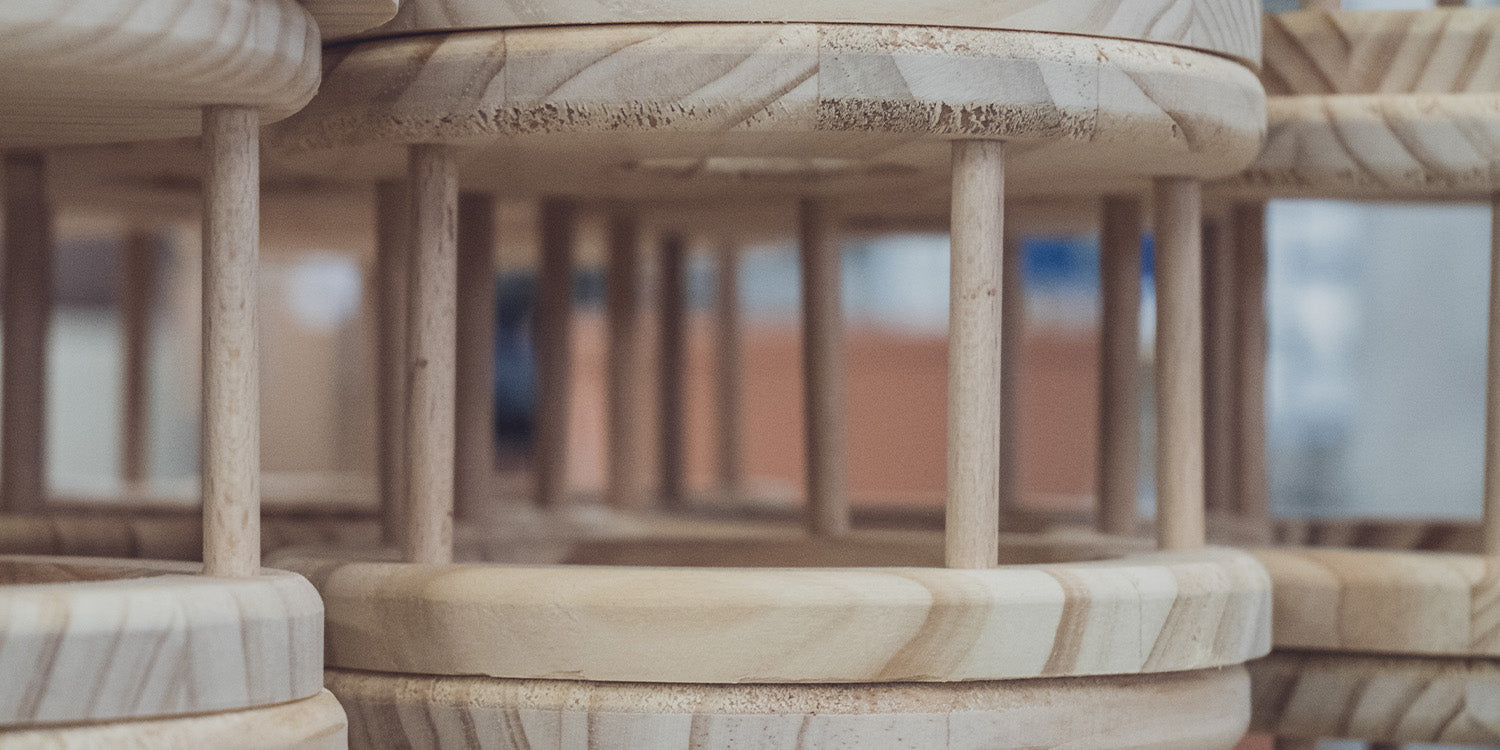
FSC-certified Wood
The wooden parts are made with FSC-certified radiata pine and plywood, sourced locally within Spain. We are always looking for new wood types and for different characteristics; we chose to use Radiata Pine in our first collection for its raw and natural look. The knots and wooden grain it has compliments the paper paste's already poetic texture.
A Circular Pouf Top
The fabric in our pouf is regenerated Italian cotton from the Carboni SRL factory. The factory is GRS certified and gets its energy from solar and wind power. Producing cotton is a highly resource-heavy process, so using recycled textiles drastically reduces our water, chemical, and energy consumption.
The cushion is filled with organic coconut fibres mixed with natural latex.
